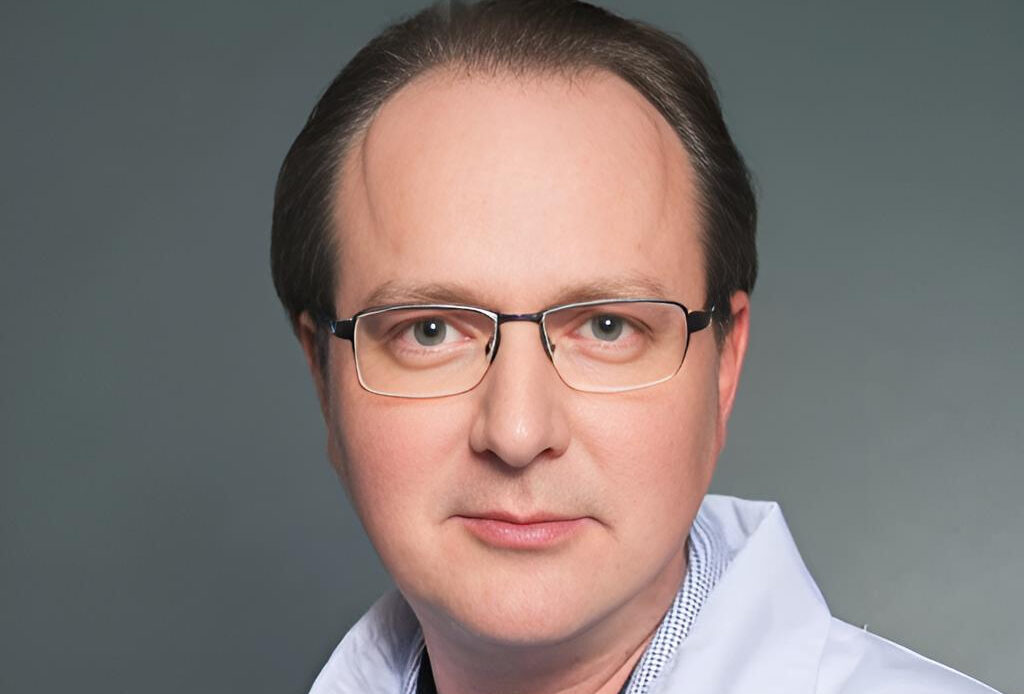
Timothée Olivier: CDK4/6 inhibitors as adjuvant therapy in ER+ /HER2- early breast cancer
Timothée Olivier, Medical Oncologist at HUG – Geneva University Hospitals, shared a post on X:
“Our new work is out in EJC, led by Alyson Haslam, with Sruthi Ranganathan and Vinay Prasad ! We argue against the routine use of CDK4/6 inhibitors as adjuvant therapy in ER+ /HER2- early breast cancer.
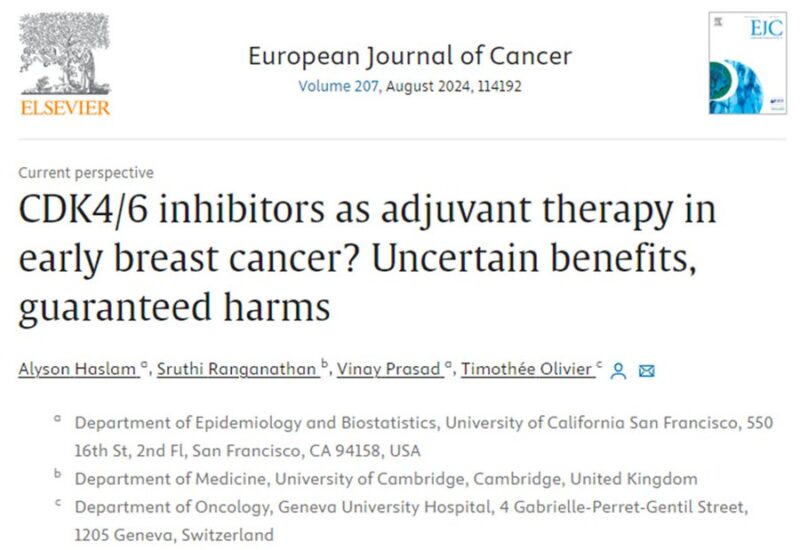
First: the iDFS gain are fragile, with questionable reliability We noted an imbalance in early drop-out, with potential for informative censoring.
This is detailed here.
In short, with slight assumptions, the benefit is no longer significant.
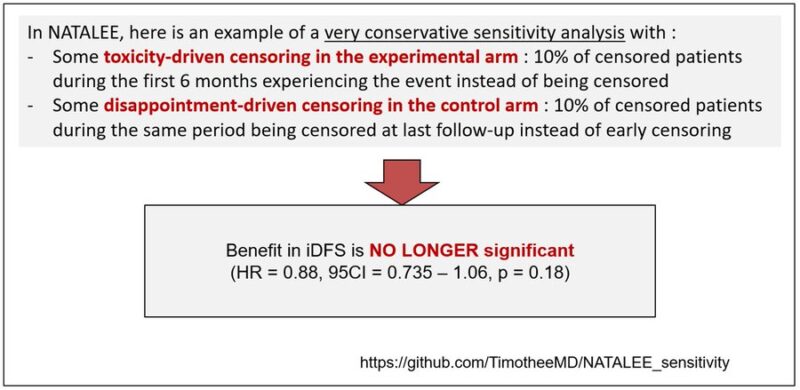
Second: the proportion of ‘survival’ events in the iDFS is minimal iDFS – invasive disease-free survival – is very precisely defined, and many scenarios can count as an event.
As you can see below, some events are curable, while others may even be deaths.
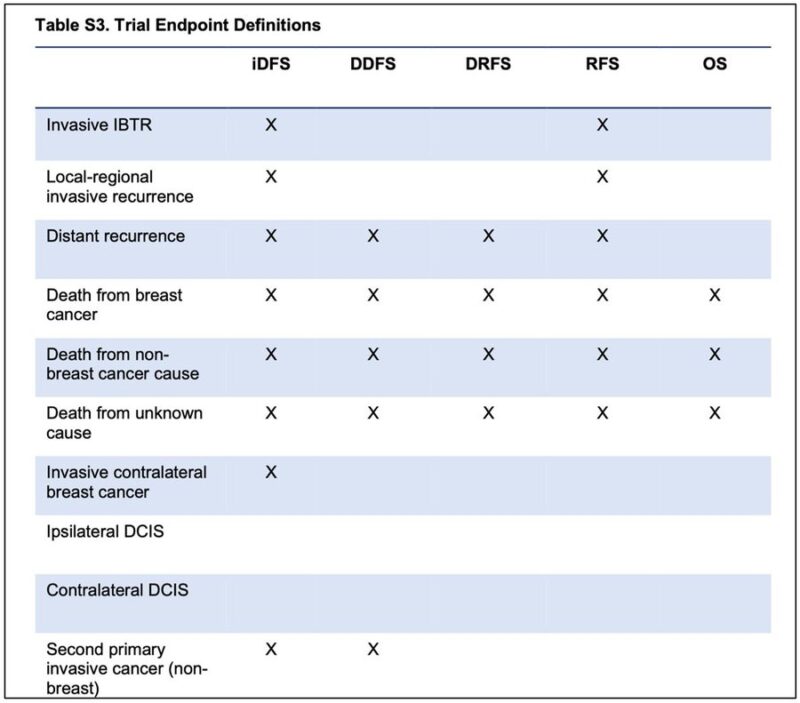
MonarchE and NATALEE provided the breakdown of iDFS events.
iDFS events was 6.0% of events in MonarchE and 4.7% in NATALEE. (0,9 % and 0.4 % of all participants, respectively)
‘In other words, iDFS gains were mostly driven by non-death events.’
Third: concerns with toxicity With 50% to 63% grade ≥3 events with abemaciclib and ribociclib, respectively, these are toxic drugs. We also see an increase in COVID-related deaths in pts receiving CDK4/6 inhibitors.
Was this due increased rates of neutropenia?
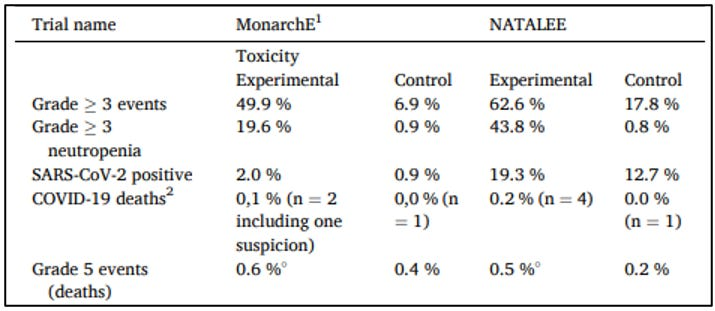
Fourth: unprecented financial toxicity In previous work, we calculated the cost to avert one event for adjuvant therapies, with prices ranging from $820,000 to $2,640,000 (left in the figure below). look now!
CDK4/6 inhibitors have unprecedented costs !
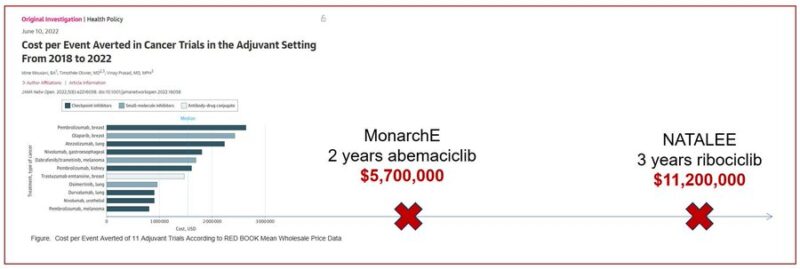
Why it’s super important? The NATALEE strategy could affect up to 35% of newly diagnosed breast cancer, which was diagnosed in approximately 2,300,000 people in 2022!
Thanks to my co-authors, and check our coverage here.”
Read further.
Source: Timothée Olivier/X
-
ESMO 2024 Congress
September 13-17, 2024
-
ASCO Annual Meeting
May 30 - June 4, 2024
-
Yvonne Award 2024
May 31, 2024
-
OncoThon 2024, Online
Feb. 15, 2024
-
Global Summit on War & Cancer 2023, Online
Dec. 14-16, 2023
